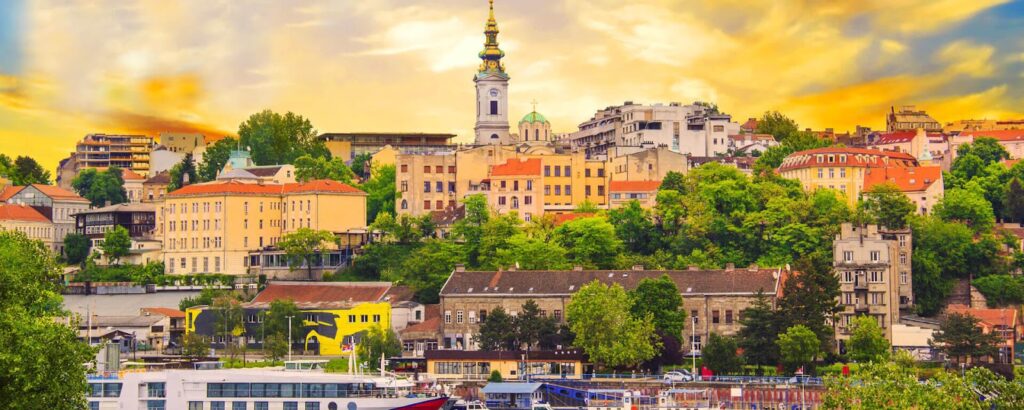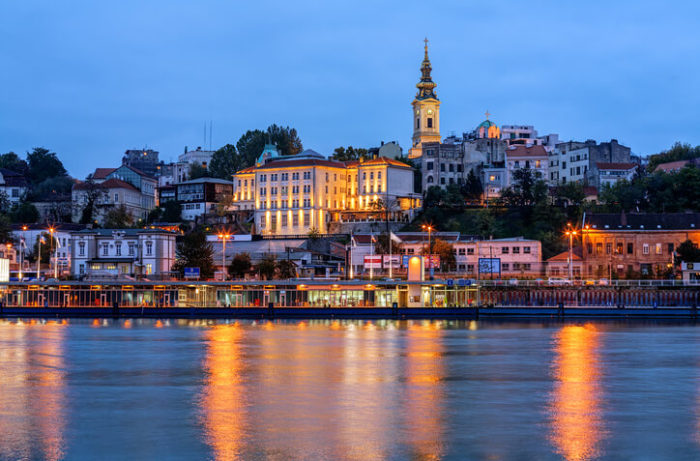For Events/Conferences/ Interpretation Services
- Ram Kesarwani - 9811 200 494
- ram@translationindia.com

Serbia is a country located in Southeast Europe. It is bordered by Hungary to the north, Romania to the northeast, Bulgaria to the east, North Macedonia to the southeast, Kosovo to the south, Bosnia and Herzegovina to the southwest, and Montenegro to the west. The first inhabitants of Serbia were the Illyrians, who arrived in the region around 2000 BC. The Illyrians were a tribal people, and they established a number of kingdoms in Serbia. In the 6th century AD, the Slavs arrived in Serbia. The Slavs were a nomadic people, and they eventually settled in Serbia. In the 11th century, Serbia became a kingdom. It remained a kingdom until the 14th century, when it was conquered by the Ottomans. In the 19th century, Serbia regained its independence. It remained an independent country until 1918, when it became part of the Kingdom of Yugoslavia. In 1991, Yugoslavia broke up, and Serbia became an independent country.
Serbia is a landlocked country. The capital of Serbia is Belgrade, which is located on the banks of the Danube River. Serbia is home to a variety of landscapes, including mountains, plains, and forests. The highest mountain in Serbia is Mount Triglav, which is 2,067 meters (6,778 feet) tall. Serbia is home to a number of rivers, including the Danube, the Sava, and the Drina. The Danube is the longest river in Europe.

The economy of Serbia is based on agriculture, industry, and tourism. The main agricultural products are wheat, corn, and soybeans. The main industries are mining, metallurgy, and manufacturing. Tourism is a growing sector, and Serbia is a popular destination for winter sports and hiking.
The culture of Serbia is a mix of Slavic, Balkan, and Byzantine influences. The official language of Serbia is Serbian. The main religion in Serbia is Serbian Orthodox Christianity. Serbia is a popular tourist destination for its vibrant culture. The country is home to a number of festivals, including the Exit Festival and the Nis Festival.

Exit Festival is an annual music festival that takes place in Novi Sad, Serbia. The festival is one of the biggest music festivals in Europe, and it attracts over 200,000 people from all over the world.
The official language of Serbia is Serbian. Serbian is a Slavic language that is closely related to Croatian, Bosnian, and Montenegrin. Other languages spoken in Serbia include Hungarian, Romanian, and Albanian.
In Serbia , Translation India provides a variety of services, including simultaneous conference interpreters, document translation, and language translators. Translation India provides expert translation services in a variety of languages, including Serbian , Hungarian, Romanian, Albanian. and many more languages . The business offers flexible and reasonable pricing To meet the needs of its consumers, the organisation provides flexible and reasonable pricing. Translation India’s dedication to offering excellent services and satisfying customer expectations creates a positive experience for all parties involved.
If you’re looking for translation or interpreting services in Serbia consider Translation India. A team of qualified and certified professionals from Translation India can deliver high-quality services that are individually tailored to your demands.